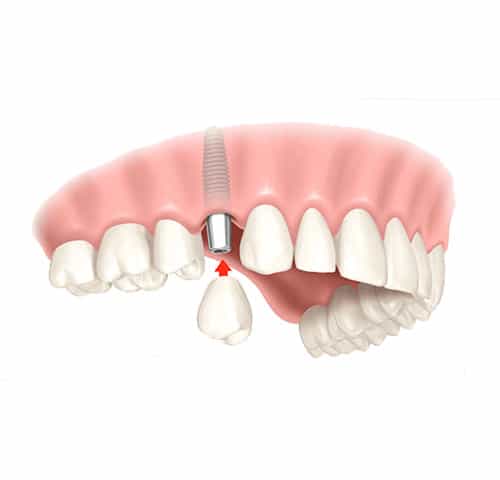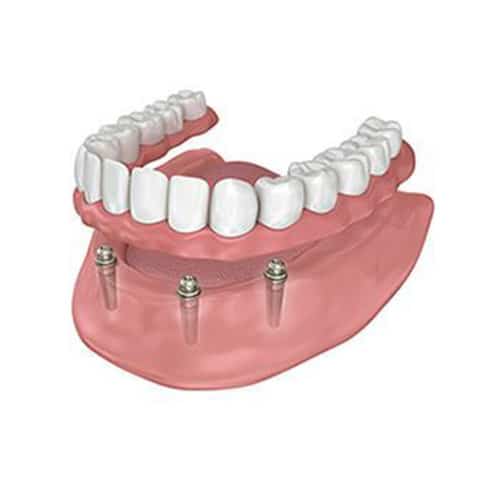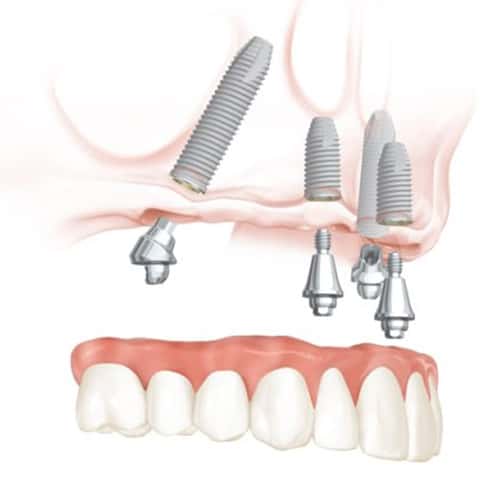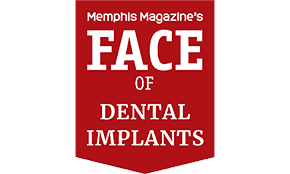Step-by-Step Guide to Dental Implants: From Consultation to Full Recovery
Southaven’s Solution for Missing Teeth: Dental Implants
Worried About Smiling in Southaven Because of Missing Teeth?
Worry no more! We have the perfect solution to help you smile, laugh, talk, and eat heartily again. In Southaven, we offer an upgraded version of dentures that addresses all the common issues of traditional dentures. Our solution? Replacing your missing teeth with state-of-the-art dental implants. While you can’t grow new teeth, dental implants are the next best thing.
Dental implants are securely placed into the bone where your natural teeth once were, restoring the function and freedom you used to enjoy. Not only are they highly functional, but they also look incredibly natural—you’ll forget they aren’t your real teeth.
A dental implant is a surgically placed appliance that integrates with your jawbone over a few months, serving as a replacement for the root of a missing tooth. In Southaven, this modern solution can give you back your confidence and your smile.
If you’re concerned about the cost of dental implants or searching for affordable dental implants in Southaven, rest assured that we offer competitive pricing options. Whether you need a single tooth implant or a full mouth dental implants cost estimate, we’ve got you covered. Our team is here to help with everything from implant dentures cost to understanding how much a tooth implant costs.
For those worried about the dental implant’s procedure, we provide comprehensive care from start to finish. We ensure that your experience is as comfortable as possible, whether you’re getting dentures and implants, dental crowns, or exploring implant-supported dentures. And if you’re curious about dental implants near me or need urgent dental care in Southaven, we’re just a call away.
Considering clear choice dental or other options? Our Southaven clinic offers personalized solutions tailored to your needs. From affordable tooth implants to denture implants that look and feel like your natural teeth, we’ve got the expertise to deliver exceptional results. Plus, with flexible payment plans, even those on a budget can achieve the smile they’ve always wanted.
Say goodbye to the discomfort of loose dentures and the frustration of missing teeth. With our advanced dental implants, you can regain your confidence and enjoy life to the fullest. Don’t let concerns about the cost of a dental implant or the price of dental implants hold you back. Contact us today to learn more about how dental implants can transform your smile!
The Advantages of Dental Implants
All these benefits make implants the best investment in oral health on a long-term basis.
Strengthen and maintain bone structure: By integrating with the jawbone, dental implants help strengthen and maintain bone structure, preventing the bone loss that often accompanies missing teeth.
Ability to chew healthy food: Dental implants restore your ability to chew healthy food effectively, allowing you to enjoy your meals without discomfort.
Confidence to smile: With dental implants, you’ll gain the confidence to smile freely, knowing that your implants look and feel like real teeth.
Stimulated bone growth and prevents bone loss: Dental implants stimulate natural bone growth and help prevent bone loss, maintaining the integrity of your jawbone.
Protection of existing teeth: Implants also protect existing teeth by helping to preserve bone structure and preventing further dental issues.
Long-lasting and reliable: Dental implants are known for their long-lasting and reliable performance, making them a durable solution for tooth replacement.
Higher success rate: Dental implants have a higher success rate compared to other full-arch treatment options, offering a proven solution for tooth restoration.
If you’re in Southaven and considering dental implants, you can trust that these benefits will provide you with a long-term solution for your oral health needs.
Our Top 3 Dental Implants Offering

Single Dental Implants and Bridges in Southaven
If you have a single missing tooth, we can provide a single tooth implant and a dental crown to replace it. The dental implant will replace both the missing natural tooth and the root of the tooth. In Southaven, our dental implants offer a reliable and aesthetic solution for tooth replacement, ensuring you regain full function and a natural appearance.

Snap-On Dentures in Southaven
An implant over-denture is a type of denture anchored by surgically placing implants into the jawbone. These snap-on dentures provide excellent protection and support, offering numerous advantages. In Southaven, our dental implants enhance the stability and comfort of your dentures, ensuring a secure and reliable fit.

All-On-4 Fixed Dentures in Southaven
All-on-4 is designed to maximize your existing jaw capacity, often eliminating the need for preliminary bone graft operations. This approach minimizes the number of initial appointments needed. In Southaven, our All-on-4 fixed dentures offer a streamlined, efficient solution for full-mouth restoration, providing both function and aesthetics with fewer procedure
The Ultimate Choice for Dental Implant
Map and Directions
Advanced Dental Implant and TMJ Center
7135 Getwell Rd Suite 100,
Southaven, MS 38672, United States
Call: (662) 655-4868
Email: info@adatmj.com
Meet the Doctors

Dr. Pradeep Adatrow
Dental Implant Surgeon and Prosthodontist

Dr. Jay Patel
Dental Implant and Periodontal Specialist
Why Choose us?
- Board Certified Implant Surgeon / Specialist
- 21+ years of experience in placing implants
- Family owned practice
- We stand behind our work
- 5 year warranty on our dental implants
- Over 15,000+ dental implants placed
- Thousands of implant denture procedures performed
- 99% dental implant success rate
- IV Sedation / Twilight Sedation / Sedation dentistry offered
- 14 + years of full time teaching experience

What to Expect at your Consultation

Personalized Evaluation
Comprehensive dental assessment, including Xrays

Customized Treatment Plan
Tailored solutions with detailed cost information by our team.

Flexible Payment Plans
Financing options to make your treatment affordable.
Click Below and Listen to what our patients Say!

Jay

Bruce

Marisa

Brad

Jerry

Karen

Christi Smith

Hillary Stark

Mahdi Albushain

Perrin Dickerson

Seth Strickland










